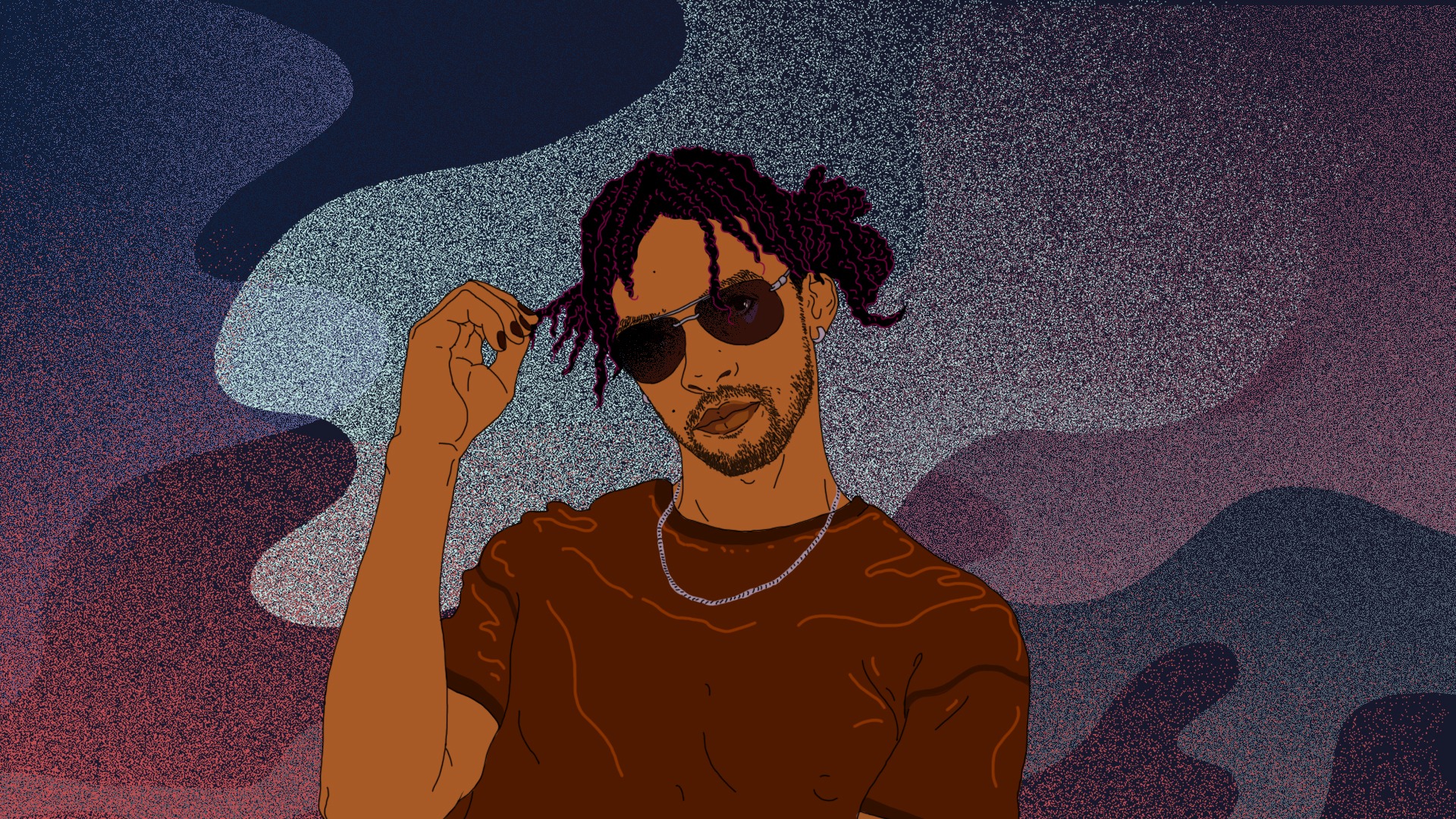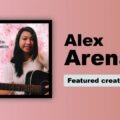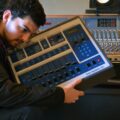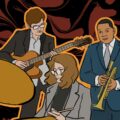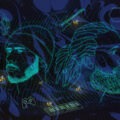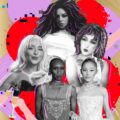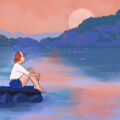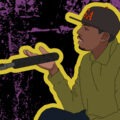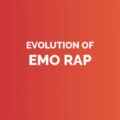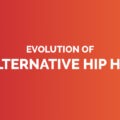Using rap as a vehicle to conquer his demons and rise above, RAC grad Caijo is stepping into his own power. The rapper’s sophomore release 2.DOPE explores his inner workings, layering emotional intensity between bars.
Describe the sound of Caijo?
Pure dopeness
What’s your zodiac sign?
Gemini
Song that’s highest rotation on your playlists right now?
Spotify says it’s “Headshots” by Isaiah Rashad, Soundcloud says it’s “Power” by Young Thug!
Best way to get in the zone?
Having my bills paid
Favourite lyric?
This one is tough, but I’ll say: “Lock my body / can’t trap my mind” by Jay-Z on “Can I Live”
Whether he’s pulling from hip-hop heavyweights or absorbed in the groove of modern funk-rockers, Caijo’s musical craft is marked by the pursuit of reinvention. Born in the capital of Zimbabwe, the up-and-coming creative—also known as Dylan Johnson—pulls limitless motivation from the undeniable truth that nobody will ever craft your unique style quite as well as you. By putting pen to paper as a means of unpacking his hardships, Caijo stokes the flames of expressive originality for a new generation.
On sophomore release 2.DOPE, Caijo peels back his undeniable swagger to reveal darker shades of introspection. Across each track, he flaunts a calculated blend of personal vulnerability and potent confidence. Mixing his slick flow with candid lyricism and brooding production, the rapper bares his history without compromising the heat. He sat down with us at the beginning of the new year to trace the steps of his compelling journey and deconstruct his creative tenacity.
RAC: Who is Caijo? Tell us a little bit about the early years that influenced you as a rapper.
Caijo: I was born in Zimbabwe to interracial parents, which made me an outcast from the very beginning. My dad’s family disowned him for giving me his last name; I was the only mixed-race person I knew until my brother was born 5 years after me. You could say I am the stone that the builder refused.
Growing up during one of the worst economic declines in modern history wasn’t easy, especially after my dad got really sick. His alcoholism took a toll, but my parents always worked hard to keep us covered. When I was 15, my dad passed away, and it became difficult for my mom to provide for our family on her own. I was mischievous as a kid and got myself into some trouble. I started to dabble with cannabis, and struggled to see a future with higher education in it, so I dropped out of high school at 17 and got a job to help my mom provide a better life for my brother.
I found my love for rap at an early age; at the time, it felt inclusive for the people who have been excluded by society. Around the same time I started to hustle, I began to dabble in my own rapping. I didn’t take it seriously at the time, because recording was just an outlet for me, and the studio was an easy place for me to get high without any pressure. Despite this early creativity, I never thought that music would be profitable for me, so my major focuses were my day job, my side hustles and various forms of escapism.
My brother always looked up to me, so he imitated most of what he saw – good and bad. When I got the chance to change my life with a move to Canada, I took it with both hands. After three years here, I realized that my brother was living the life I left behind. Because he was more committed to making music than I ever was, I decided to get back to the craft as a way to inspire him to want more for himself.
I took a leap of faith to join RAC in the fall of 2020. Just as I was getting ready to leave Ottawa, I got the news of my mom’s passing. I had to make sudden plans to go home, in the midst of COVID-19. I started my first semester remotely, before finally moving to Toronto in October of 2020. I then released my debut solo mixtape DOPE FOR YOUR EARS in April of 2021, and now I’m gearing up for my sophomore project 2.DOPE.
RAC: Let’s dive into your musical inspirations. How have those changed over time, and what do you appreciate about those creatives?
Caijo: My mom and dad were always listening to music growing up. My mom loved all things Motown – from Gladys Knight and the Pips to Smokey Robinson, Berry Gordy Jr., The Supremes, and Tammi Terrell to name a few. She also loved Whitney Houston, plus a bit of Air Supply and Dolly Parton. She liked tunes that you could vibe to, and I still revisit those when I miss her. My dad gave me a more eclectic taste, as he was big into 60s and 70s rock & roll and classical composers. We played it all, from Zeppelin and Hendrix to Brahms and Vivaldi. I was actually named after Bob Dylan, so you could say music was always my destiny. Then my uncles bumped East Coast rap like DMX, Nas, and Wu Tang Clan, but I wasn’t really into rap much at the time. I’m almost embarrassed to admit it, but I was more a fan of boy bands like *NSYNC and the Backstreet Boys.
That was until the 7th grade, when I found a bootleg copy of The Marshall Mathers LP at my homie’s crib. I was dumbfounded by the genius of Eminem’s wordplay and the cadences of his raps. From there, it was hip hop all the way for a few years, which my parents didn’t appreciate as much. Only after high school (and listening to Lil Wayne almost exclusively for about two years straight) did I start to expand my own playlists, going through a huge Red Hot Chili Peppers, Kasabian, and Muse phase.
Now I listen to everything. I’m mostly looking for good lyricism, great song structure, a groove and listenability. My favourite album from last year was Isaiah Rashad’s The House Is Burning. I feel like he’s so honest in his music. Young Thug is one of my top 5 for his genius, and Paolo Nutini is also up there.
RAC: You previously identified that rap music is “inclusive for the people who have been excluded by society”. Could you elaborate more on your connection to rap? How do your own sound and story elevate the genre?
Caijo: Rap is a way of taking up space in a society that wants you to either be part of the status quo or to reject it to an acceptable degree. Those regarded as criminals and addicts are able to find a kind of absolution from their pasts and become contributing members of the community. I’ve had some troubles in my own life and rap allows me to exorcize some of the demons buried deep within my own soul. It’s a way to process some of the trauma from my past, and express myself in ways that I fear people close to me wouldn’t understand within the context of “normal” conversation.
I’ve reinvented myself, so I want my music to be proof that people are allowed to be themselves, no matter what outsiders think. I’ve been told by others that I “dress gay” (whatever that means) and I’ve been told that I seem “too nice to make the music I make” – but when you’ve seen what I’ve seen, you know that no good comes from being mean to people. I won’t change myself to suit the image that other people think I should uphold, I’m just going to do what feels right in the moment to me. A few weeks ago, someone asked me “what my brand is”; I took a minute to reflect, and I said “anti-branding”. Human beings are so much more diverse than a mission statement, and our core values should be allowed to shift with time. I’m just being real and staying true to myself, and that’s how I’m going to change the game, as who I am will be evolving as I grow.
RAC: You describe the beginning of your musical career as a “leap of faith”. For many artists, weighing the decision to pursue their craft is a transformative process. What advice would you give to emerging creatives who are uncertain about the journey ahead?
Caijo: To those creatives, I would say: get your money up, be yourself more, and stay hydrated. This craft isn’t free or cheap. Don’t pretend to be someone you’re not, and make sure to look after yourself. In the outro for 2.DOPE, I have a line that goes “Why they label me an artist with parentheses around it / Want me in a box, type with fences all around it”. That just speaks to the fact that people will always project their own limitations onto you. If I’m not in jail, and have no criminal record, does that mean I can’t speak to the streets? In the words of Rick Ross, “I’m a bigger boss for the things I don’t say, than for the things I do say”…
RAC: Your latest project, 2.DOPE, navigates emotional topics like loss and substance use to paint an ultimate picture of resilience. Tell us more about the universe of 2.DOPE. What was unique about the creation of this project?
Caijo: 2.DOPE offers a unique chance for me to tell more of my own story and get a bit more personal with my audience. To symbolize this, I chose the elephant face for the cover, as this is my family totem. My previous project DOPE FOR YOUR EARS is more about the world around me, and 2.DOPE is more about the world inside me.
Right from the jump with “500”, one of the first lines is “I put my own f***** father in an ambulance”. This is quite literal: the night before my dad passed away, I remember the ambulance passing our house at 3 a.m., and I had to run after it to call the paramedics back. The medics returned, and they were a big man and a small woman. My dad, being a pretty hefty man himself, was too heavy for the woman to put him on the stretcher, so I had to help them get him up onto the gurney.
I think the most unique thing about 2.DOPE would be the fact that none of the songs were premeditated. Every record was made from scratch with my producer, Laurent. He really pushed my creativity with this tape. We experimented more with Autotune, reverbs and effects in a fluid way without paying too much attention to “what’s hot right now”. We also came back and redid certain songs. Previously with DFYE, the recording of each song was marked complete in a single session, but here we reworked things. I just had to make sure each record was perfect.
RAC: 2.DOPE follows your first solo mixtape, DOPE FOR YOUR EARS, which was released this past April. Between these projects, you’ve also wrapped up your studies at RAC and pushed through significant personal hardships. How have you motivated yourself to create in spite of life’s challenges?
Caijo: Pressure makes diamonds, baby. Life is going to have challenges anyway, so why fold? For me, creating is exactly what motivates me. It’s a chance to be raw with my thoughts and feelings. I’m no longer the type of person that lashes out, but on the mic I can let loose. I know that the people I love – those who may be less fortunate than me – will appreciate hearing well-produced music. If that music can contain my essence too, then it could even give some of my buddies a chance to smile when they turn it up in their ride, or headphones, or wherever they might listen. Some of my old crew who have lost their way will call me, and I can feel how much they enjoyed the last record, so this is the high I’m chasing nowadays.
RAC: You’ve mentioned the special relationship that you share with your brother. As you follow your calling, you have also played a role as his mentor. How has this deeper connection with your brother inspired your own artistic development?
Caijo: In this day and age, most rappers are trying to get more popular, get more listeners, get more streams, and get more followers. So much so, that they end up doing things for people they don’t even know, or worse, paying money for bots to get numbers up. I try to put energy into people I can connect with, so I can actually give some motivation to folk. Being my brother’s keeper means I can see firsthand what my art does for him. I don’t need to search for validation; I have a stellar compass for which direction to take because I can know what type of impact I’m having on people. For me, as an artist, your legacy is going to be about impact, and not about streams or social media followers. That said, being a mentor isn’t easy. Especially when I try to keep myself to a high standard, that ends up being telling, as he feels pressure from me. I’m trying to get him to put out music again.
RAC: Tell us more about your musical education at RAC. What were the most significant takeaways from your studies?
Caijo: There is a Buddhist teaching that “the biggest barrier to wisdom is not ignorance but rather the illusion of knowledge”; throughout my education, I was reminded to always be humble, because there’s always more to learn. I thought I had an understanding of recording, so I expected to learn about other aspects of the music: things like the business side of the industry, musicality, pre- and post-production. I did learn about these things, but my appreciation for all the different stages of the recording process, even though I thought that I understood them, has increased at least tenfold. Finally, I learned to always be your best self, as you never know what opportunity is ready for you – if you’re prepared for it.
RAC: What are your goals as a musician? What kind of impact do you hope to leave on the industry?
Caijo: I guess this is the part where I say “dinner with Hov”. I want to do big live shows. I’m talking arena-style tours where I take other artists from Africa along with me. I want to build studios around the world to afford people the opportunity to make radio-worthy records, as that was always a barrier for me back home. The studios always had crappy mics, poor acoustic treatment, unprofessional engineers, and that’s a hamstring for so many artists – access.
It’s tough to speak on the impact like that because I haven’t even made it yet. There’s still a LONG way to go in terms of where I hope to see myself in this music, and where I want to take it, but I do hope to elevate the game. That is my ultimate goal as a musician – to do something that I’ve never seen done before. If I can inspire people and leave a roadmap after me, then in my eyes, I’ve made it.
RAC: Thank you for your time, Caijo! What can we expect from you in 2022?
Caijo: I mean, no one knows what the future holds, but you can expect me to be pure. That’s pure with my intentions, my lyrics and my soul. This year, I’m open to collaborating with other artists, perhaps across genres. I also want to be more involved in production for sure. God willing, of course. Thank you for this opportunity – peace!
Written by Rebecca Judd
Illustration by Yihong Guo
